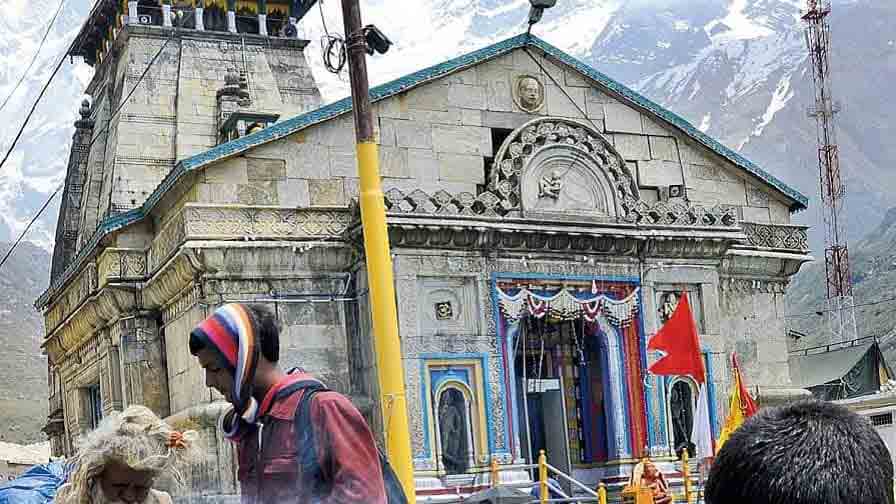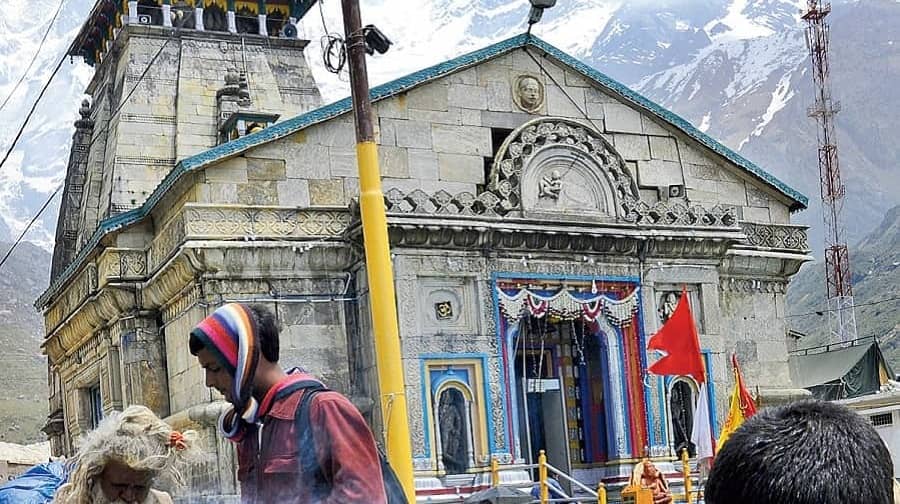The Supreme Court on Tuesday upheld the Centre’s decision to go ahead with the construction of the Char Dham national highway project, stated to be crucial for the country’s defence preparedness vis-a-vis China.
The top court, hearing petitions citing environmental concerns, said the judiciary could not supplant its own views overriding national security.
“This court, in its exercise of judicial review, cannot second-guess the infrastructural needs of the armed forces. The appellants would have this court hold that the need of the army will be subserved better by disaster-resistant roads of a smaller dimension,” Justice D.Y. Chandrachud, who authored the judgment, said.
“The submission of the appellants requires the court to interrogate the policy choice of the establishment which is entrusted by law with the defence of the nation. This is impermissible,” he added.
The court noted that the highways ministry decided to construct the road on the recommendation of the defence ministry.
The Chardham Mahamarg Vikas Pariyojna, announced by the ministry of road transport and highways on December 23, 2016, aims to widen approximately 900km of national highways to ensure safer, smoother and faster traffic movement, besides providing strategic defence preparedness and movement of Indian troops.
These highways connect the Uttarakhand shrines Yamunotri (NH94/134 up to Janki Chatti), Gangotri (NH108), Kedarnath (NH109 up to Sonprayag), Badrinath (NH58) and the Tanakpur-Pithoragarh stretch of the Kailash Mansarovar Yatra route (NH125).
Citizens for Green Doon, an NGO, had challenged the construction of the project on the ground that the development activities would have a negative impact on the Himalayan ecosystem and lead to deforestation, excavation of hills and dumping of muck, landslides and soil erosion in an already sensitive environment as no proper environmental impact assessment was done.
The National Green Tribunal had earlier declined to halt the project.
The NGO, through senior advocate Colin Gonzalves, had also cited a media interview of the army chief regarding the adequacy of infrastructure for troops movement.
Attorney-general K.K. Venugopal, appearing for the Centre, argued that the national highways from Rishikesh to Mana, Rishikesh to Gangotri, and Tanakpur to Pithoragarh act as feeder roads to the India-China border and have strategic importance. He said there had been a change in the circumstances and it was necessary that personnel and equipment move swiftly to army stations at the India-China border points.
The Centre told the court that the roads needed to be wide enough for vehicles to move in two rows without causing roadblocks. A carriageway with a width of 7m is necessary to meet the security concerns of the country.
Accepting the Centre’s arguments, the bench that also had Justices Surya Kant and Vikram Nath observed: “We do not find it necessary to place reliance on a statement made to the media, given the consistent stand of the MoD (ministry of defence) during the deliberations of the HPC (high-powered committee) and before this court. The security concerns as assessed by the MoD may change over time. The recent past has thrown up serious challenges to national security. The armed forces cannot be held down to a statement made during a media interaction in 2019 as if it were a decree writ in stone.”
Justice Chandrachud said the considerations for development of national highways in the plains and in hilly and mountainous regions were not identical.
“We must therefore arrive at a delicate balance of environmental considerations such that they do not impede infrastructural development, specifically in areas of strategic importance crucial to the security of the nation,” the court said.
“We find that the need for the development of national highways of a DL-PS (double lane) standard is proportionate to the object of fulfilling the security concerns of the nation as assessed by the MoD. This is reinforced by the fact that the roads beyond the highways in the project, beyond Gangotri, Mana and Pithoragarh, are being developed by the MoD as double-laned highways,” Justice Chandrachud added.












